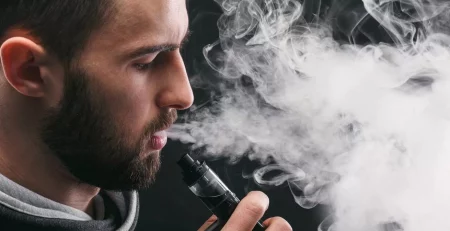Am I Hyper Sexual Because of Trauma? An Informal Quiz
Get Answers and Guidance on Hypersexuality and Trauma
Rates of sexual assault in the Land of Enchantment are above the national average – and the statistic means New Mexicans are carrying some hefty baggage. Many who engage in risky sexual behavior share one common underlying factor: Past experiences with sexual trauma.
It’s especially concerning for victims of childhood sexual abuse at such an early age that they had no chance to develop healthy coping mechanisms. If you are engaging in compulsive sexual behavior, you may wonder: Am I hyper sexual because of trauma?
Icarus New Mexico has a team of dedicated mental health professionals who have helped innumerable clients heal from post-traumatic stress disorder. Underlying trauma can cause many issues, including a steep decline in overall mental health.
These instances can include adult or childhood sexual trauma, among many other sources of trauma. We’re confident we can help your traumatic sexual experience and leave your related trauma disorders behind you.
We invite you to read more about the relationship between sexual abuse and the underlying issues that lead to sex addiction.
The Need for Effective Strategies to Heal Sexual Traumatic Experiences

The National Intimate Partner and Sexual Violence Survey revealed that New Mexio’s sexual assault rates are above the US average.
- 24% of women who participated in the survey reported at least one rape in their lifetime. The national average is 19.5%.
- 49% of women in NM who responded stated they’d experienced sexual violence other than rape. The national average is 43.6%.
- 21% of male survivors reported sexual assault other than rape, with a national average of 24.8%
- 6% of high school girls reported they had been forced into sex at least once. The number reported nationally is 8.9%.
- 1% of high school boys also reported forced sexual acts at least once, almost doubling the national average of 2.4.%
The need for licensed therapists who understand hypersexuality trauma and post-traumatic stress disorder is undeniable when you consider these statistics.
These sexual abuse statistics, both within New Mexico and across the United States, indicate a severe problem.
Get a Confidential Mental Health Assessment
The Key Difference Between Hypersexuality and an Individual’s Sexual Desire
A sex addiction, or hypersexuality, usually means someone has a fascination with sexual thoughts. These can be sexual fantasies, which many people have. The most significant difference between the two is that sexual thoughts are so pervasive in hypersexual behavior that they cause disruptions in daily life.
It’s important to note the difference between healthy sexual urges and hypersexual behavior as you continue reading.
Is Hypersexuality Disorder a Confirmed Diagnosis?
Hypersexuality disorder is a frequent topic of studies. Also sometimes called ‘compulsive sexual behaviors,’ or ‘sexual addiction,’ is not listed as a clinical diagnosis in the DSM-5 Manual.
The DSM-5 task force had considered it for inclusion in the last revision, but ultimately rejectedsexual addiction as a diagnosis. Their concern was the lack of a clear definition of diagnostic criteria and the blurred boundaries between hypersexual behaviors and an above-average sexual drive.
Most consider it among the trauma-related disorders – mental health conditions that come directly from involvement in a traumatic event.
Besides forced sexual activity, these events commonly include accidents, the death of a loved one, or natural disasters.
A Person’s Response to Trauma Can Impact the Brain

Sexual abuse impacts the prefrontal cortex, the part of your brain that guides you in making good decisions and helps to control impulses and emotional responses. Trauma activates the brain’s stress mechanism, which releases cortisol and adrenaline. When this brain response happens, the results can be:
Making Poor Decisions
Sexual abuse makes it more difficult to make good decisions or exercise self-control. This explains why some have intimate relationships with many sexual partners without any fear of sexually transmitted infections.
Reduced Emotional Stability
The prefrontal region cooperates with the amygdala to manage emotions. Trauma can cause over-reactions in the brain, resulting in impulse control issues or negative emotions.
Hypersexuality May Stem from Trauma
The brain becomes unable to manage sexual urges which can cause sexual addiction. They may have almost no personal boundaries due to low self-esteem. Besides that, they’ll rarely have long-term or healthy relationships.
This fallout is even more severe in the context of childhood sexual abuse. The brain is one of the last organs to mature. While hypersexuality trauma is terrible for anyone to experience, its impact at a young age can result in a trickier situation to resolve.
Sexual Trauma and Compulsive Sexual Behavior

Sexual abuse and hypersexual behavior share a close connection; many who experienced sexual trauma cope with the pain of these traumatic events by turning to sexual activity.
Why do these survivors respond to such an event as sexual violence in this way?
They Lack a Coping Mechanism
Some survive a traumatic event with no tools to process the emotional trauma. They find that the sexual behaviors can numb their emotional distress and distract them from memories of the assault. They may also learn to use this inappropriate coping mechanism to give them a sense of controlling an otherwise chaotic situation.
Re-enacting Traumatic Experiences
The National Institute of Health explains the phenomenon of “re-enactments.” NIH warns that many people who lack coping strategies sometimes repeat past traumatic experiences – either unwittingly or to try to regain control over their lives.
An example they share is how women who have unresolved trauma from childhood sexual violence often get involved with abusive partners as adults.
Get Accredited Treatment Programs at Icarus
Other Possible Causes of Compulsive Sexual Behaviors
Besides post-traumatic stress disorder or PTSD, here are some of the other causes of hypersexual behavior:
Mental Health Disorders
Some mental health conditions, especially mood and personality disorders, can cause compulsive sexual behavior. The people use sexual expression to manage their emotional distress. Evidence-based treatment for this can include intensive therapy and mood stabilizers.
Substance Abuse Disorders
Using drugs or alcohol can lower one’s inhibitions, leading to risky sexual behavior. This is not necessarily the same as hypersexuality disorder, although the behaviors closely mirror it. It is usually resolved by treating the substance abuse and any underlying co-occurring disorders.
Hypersexuality Trauma Quiz – Free PDF Download

Download Hypersexuality Trauma Quiz PDF
This hypersexuality and trauma quiz is not a formal diagnostic tool. Rather, it provides you with a starting point for understanding whether your sexual behavior connects to trauma. If you are in the moderate to high-risk scoring range, seek professional guidance.
Questions: Do You Experience Hypersexuality Due to Trauma?
- Do you act on sexual urges more frequently than you’d like?
- Is sex your go-to coping tool for stress or anxiety?
- Are you unable to control urges, even if they cause issues?
- Do you have unsafe sex despite the consequences?
- Do you feel guilty after sex but continue the repeated behavior?
- Has sex disrupted your relationships, work, or responsibilities? Do you have sex to avoid your sadness?
- Do you feel disconnected or detached during sexual acts?
- Does sex make you feel relieved or emotionally numbed?
- Have you ever experienced a traumatic event?
Icarus New Mexico Can Resolve Your Hypersexuality Trauma
Either adult or childhood sexual abuse creates long-term impacts that will not always resolve without a structured, evidence-based treatment program. Icarus takes a holistic, comprehensive approach, encouraging overall well-being.
Although we fully customize programs to meet each person’s specific needs, here are some fairly routine therapies you may experience at our treatment center:
Individual Behavioral Therapy
Working with a licensed professional, you will discuss the root of your trauma and receive guidance on how to process it. Our counselors often use motivational interviewing, cognitive behavioral therapy, or dialectal behavior therapy to help lessen the impact of traumatic events on your life.
Family Therapy to Open Communication Lines
Past sexual behavior may have baffled your family, especially if they were unaware of the traumatic event. A therapist guides you through these relationship problems and helps you and your loved ones communicate about the events. You’ll emerge a stronger family unit.
Group Therapy and Peer Support

You’ll work with peer groups who have similar experiences. Together, you learn to overcome negative thoughts and find new ways to be more resilient against the trauma.
Support Groups in the Community
You will be encouraged to attend support groups, such as SMART Recovery. Unlike 12-step programs, which are only open to people with substance abuse struggles in most cases, SMART offers mutual support for any behavioral health challenges.
That means they invite all, including people with trauma-related hypersexuality.
Alternative Therapies Can Lessen Trauma
You will learn how to practice self-care to increase your self-esteem and confidence. You might explore your relationship with trauma using art, music, or movement for self-expression.
Up To 100% of Rehab Costs Covered By Insurance – Call Now!
Call Icarus New Mexico to Start Healing Trauma Today
We are here to help you resolve your trauma, helping you deal with stress in a healthy way for the rest of your life. Our customized treatment programs can help you stop engaging in dangerous sexual behaviors and instead rely on a new set of coping tools.
Call us today – we can provide relief for your trauma as soon as tomorrow. All calls are confidential, so please reach out now in confidence for our support!













